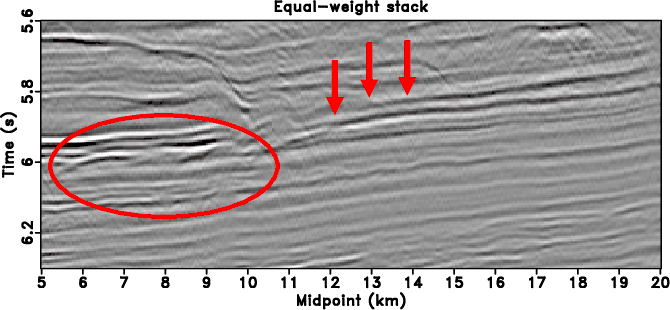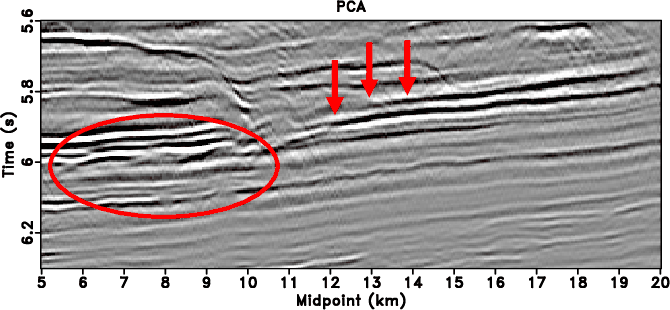A new paper is added to the collection of reproducible documents: Application of principal component analysis in weighted stacking of seismic data


Optimal stacking of multiple datasets plays a significant role in many scientific domains. The quality of stacking will affect the signal-to-noise ratio (SNR) and amplitude fidelity of the stacked image. In seismic data processing, the similarity-weighted stacking makes use of the local similarity between each trace and a reference trace as the weight to stack the flattened prestack seismic data after normal moveout (NMO) correction. The traditional reference trace is an approximated zero-offset trace that is calculated from a direct arithmetic mean of the data matrix along the spatial direction. However, in the case that the data matrix contains abnormal mis-aligned trace, erratic and non-gaussian random noise, the accuracy of the approximated zero-offset trace would be greatly affected, thereby further influence the quality of stacking. We propose a novel weighted stacking method that is based on principal component analysis (PCA). The principal components of the data matrix, namely the useful signals, are extracted based on a low-rank decomposition method by solving an optimization problem with a low-rank constraint. The optimization problem is solved via a common singular value decomposition algorithm. The low-rank decomposition of the data matrix will alleviate the influence of abnormal trace, erratic and non-gaussian random noise, thus will be more robust than the traditional alternatives. We use both synthetic and field data examples to show the successful performance of the proposed approach.
codemore code
~~~~